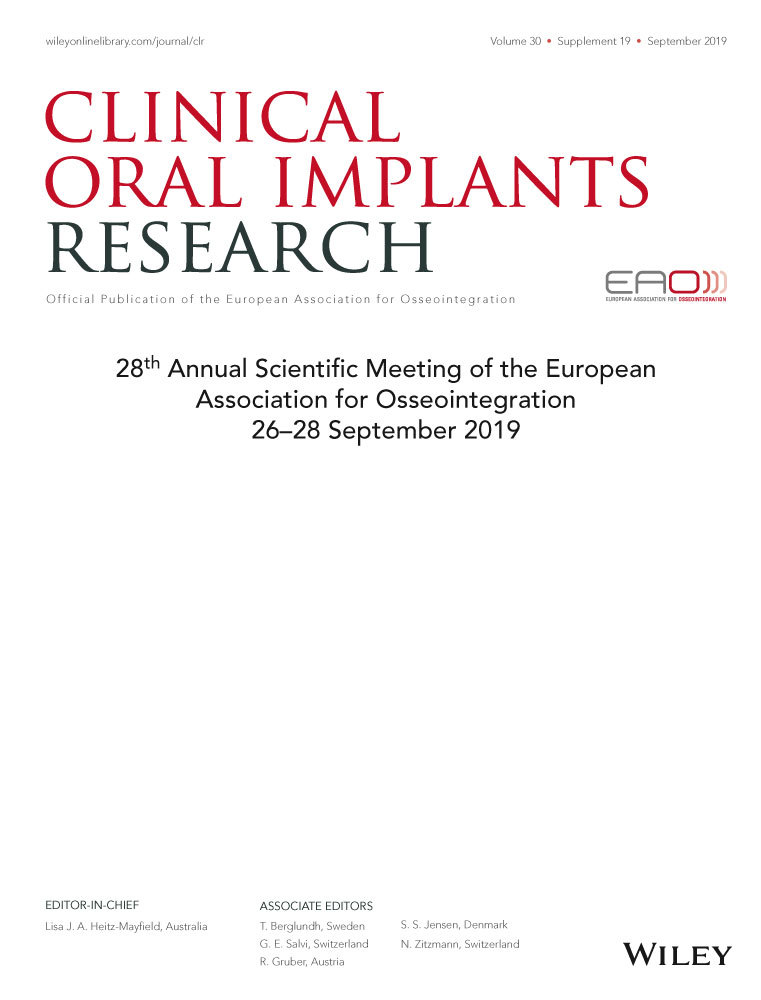The effect of keratinized mucosa width on peri-implant outcome under supportive postimplant therapy
16234 Poster Display Clinical Research – Peri-Implant Biology
Background
The relevance of a sufficiently wide zone of keratinized mucosa to the long-term success rate of oral implants remains controversial. A causal relationship has been postulated between the accumulation of bacterial plaque on implants and the progression of inflammatory processes in the peri-implant soft tissue. Possible benefit of gingival graft and on the possible impact of a professional postimplant supportive therapy program on the long-term stability of implants without KM have been rare.
Aim/Hypothesis
In this study, we sought to determine whether implants with keratinized mucosa width < 1 mm would show significantly inferior rates of peri-implant diseases after mucogingival graft intervention compared with implants without surgical intervention in patients in compliance with a supportive program.
Material and Methods
Under supportive postimplant therapy, in a Implant Dentistry Center from General Hospital of Rio de Janeiro – Brazil(Brazilian Army), 31 patients with peri-implant keratinized mucosa widths < 1 mm were identified and recruited between 2014 and 2015. All patients were submitted to only one implant. 17 patients rejected surgery (control group), and 14 patients agreed to undergo free gingival graft surgery (intervention group). After at least 2 years, keratinized mucosa width, mucositis, and peri-implant conditions were assessed.
Results
Thirty one nonsmoking patients (n = 31 implants) were included in the study. No implants were lost (survival rate: 100%). An average of 2.3 years after surgery, the intervention group implants showed a mean KM gain of 2.80 ± 1.40 mm (control group: 0 mm).
The mucositis rates were as follows: intervention group: 31%; control group: 28%. Peri-implantitis was detected in one implant in the intervention group. None of the implants were lost during the observation period (implant survival rate: 100%).
No significant differences between groups were found, except that the keratinized mucosa width values were significantly greater in the intervention group (P < 0.001).
Conclusion and Clinical Implications
Our study could not find reliable data to support the hypothesis that periodontal soft-tissue grafting procedures aimed at increasing keratinized mucosa width exerted a positive influence on the incidence of peri-implant diseases. High survival/success rates and low incidences of peri-implant diseases over long periods of time can be expected in patients who attend professional supportive programs regardless of the absence or presence of peri-implant keratinized mucosa.




